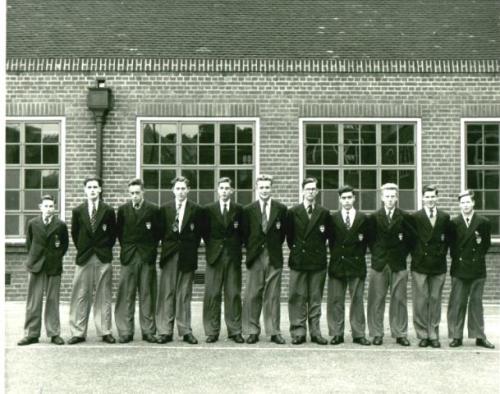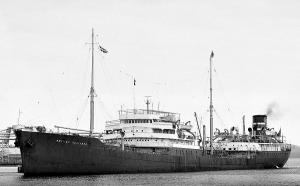
1952 Entry of BTC Engineer Apprentices at Wandsworth - Courtesy Ken Goodison. ◊Ken Goodison, Peter Bamforth, R J (Dick) Shepheard, - Holmes, Brian Elford, - Hoskins, Brian Barnes, Geoffrey Hartwell, Peter Everett, Hamish Cattanach, - Western (or Weston).
I started my life as an Engineer as an apprentice with the British Tanker Company in 1952 at Wandsworth Technical College in South London on a course for the Ordinary National Certificate in Marine Engineering. The Summer vacations were sent in factories, in my case the first being G & J Weir of Cathcart, Glasgow, manufacturers of possibly the pump most likely to be found working steadily in
ships around the World. In my second year I worked on marine diesel engines at the works of John Kincaid in Greenock. Our third year or so was spent at sea. I served in S.S. British Realm and M.V. British Seafarer, with the Doxford opposed piston engine. Incredibly we thought we were fast with 114 r.p.m.! When I came to study logic later in life, it occured to me that “Seafarer” was a somewhat self-referential term to use for a ship.
The next year was spent in the diesel engine building yard of George Clark (1936) Ltd., in Sunderland. Being from the South, I soon learned to adopt the Wearside accent as a form of self protection.
Many years later, as an Arbitrator, I had occasion to oversee a test run of a Diesel engine at one of the works where I had been sent as an apprentice. Everyone was so courteous; as an apprentice I had never been allowed through the door between the works and the office.
It would be wonderful if any one who remembers those early days or recognises anyone in the photograph were to contact me using arbitrator@beresfordhartwell.com.



